NAEd Members Attending 2021 NAEd/Spencer Spring Fellows Retreat
James Anderson, University of Illinois, Urbana Champaign
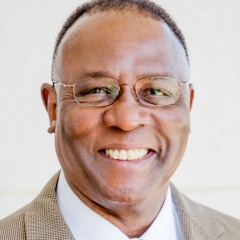
James D. Anderson is the author of The Education of Blacks in the South, 1860-1935 which received the Outstanding Book Award of the American Educational Research Association. Anderson is also co-editor of New Perspectives on Black Educational History and has published numerous articles and book chapters on the history of education. He has served as expert witness in a series of federal desegregation cases, including, Liddell v. Missouri; Jenkins v. Missouri; Knight v. Alabama; Ayers v. Mississippi; and the recent University of Michigan affirmative action case, Gratz v. Michigan. His most current work includes a publication in press entitled No Sacrifice Too Great: The History of African American Education from Slavery to the Twenty-First Century. Anderson earned a bachelor’s degree (1966) from Stillman College and both a master’s degree (1969) and doctorate (1973) from the University of Illinois at Urbana-Champaign. He was named a Fellow at the Center for Advanced Study and Behavioral Science at Stanford University and recently received the Distinguished Career Contributions Award from the American Educational Research Association’s Committee on Scholars of Color in Education. He served as advisor to and participant in the PBS documentaries School: The Story of American Public Education” (2001), The Rise and Fall of Jim Crow” (2002), and Forgotten Genius: The Percy Julian Story” (2007). He is the Senior Editor of the History of Education Quarterly.
Alfredo Artiles, Stanford University
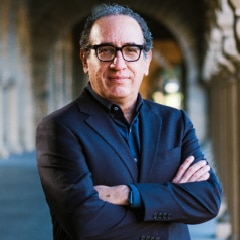
Alfredo J. Artiles is Professor at Stanford University’s Graduate School of Education. His scholarship examines paradoxes of educational equity. He studies how protections provided by special education can unwittingly stratify educational opportunities for minoritized groups and is advancing cultural, historical and spatial representations of this problem. Current work traces equity consequences of the shifting meanings of “disability” and “inclusive education” across contexts and scales and develops opportunity structures in such milieus.
Dr. Artiles served on the White House Commission on Educational Excellence for Hispanics. He and his colleagues led the federally-funded National Center for Culturally Responsive Educational Systems and Region IX Equity Assistance Center. He was elected AERA Vice-President to lead its Social Context of Education Division and received mentoring awards from Spencer Foundation, AERA, and Arizona State University. Artiles is Fellow of AERA and the National Education Policy Center. He was resident fellow at CASBS and a Spencer Foundation/NAEd Postdoctoral Fellow. He received an Honorary Doctorate from the University of Göteborgs (Sweden) and is Honorary Professor, University of Birmingham (UK).
Artiles’ Wallace Lecture “Toward an interdisciplinary understanding of educational equity and difference: The case of the racialization of ability” received AERA’s Palmer O. Johnson Award. His paper “Objects of protection, enduring nodes of difference: Disability intersections with “other” differences, 1916 – 2016” (with Dorn & Bal) won the AERA Review of Research Award. He edits the “Disability, Culture, & Equity” book series (Teachers College Press). Publications include: The 14th Brown Lecture – “Re-envisioning equity research: Disability identification disparities as a case in point” (Educational Researcher); At the intersection of language, learning and disability: Issues and opportunities in the education of bilingual children (with Castro) (Center for Applied Linguistics); SAGE Handbook on Inclusion and Diversity in Education (with Schuelka, Johnstone, & Thomas); Inclusive education: Examining equity on five continents (with Kozleski & Waitoller) (Harvard Education Press).
Thomas Bailey, Columbia University

Thomas Bailey is the 11th President of Teachers College, Columbia University, and the George and Abby O’Neill Professor of Economics and Education. An economist, with specialties in education, labor economics, and econometrics, Dr. Bailey is widely regarded as one the nation’s leading authorities on community colleges. From 1996 to 2018, he served as the founding Director of the Community College Research Center (CCRC) at Teachers College. He also served as the Director of the Center for Analysis of Postsecondary Education and Employment (CAPSEE), established in 2011 and the Center for the Analysis of Postsecondary Readiness (CAPR), established in 2014, both funded by grants from the Institute for Education Sciences of the US Department of Education. Dr. Bailey and the CCRC won the Terry O’Banion Prize for Teaching and Learning at the annual conference for the League for Innovation in the Community College in 2013, and he was inducted as an American Educational Research Association AERA Fellow in the same year.
Dr. Bailey earned his undergraduate degree in economics from Harvard University and his Ph.D. in labor economics from the Massachusetts Institute of Technology. His papers have appeared in a wide variety of education, policy-oriented and academic journals, and he has authored or co-authored several books on the employment and training of immigrants and the extent and effects of on-the-job training. Along with Shanna Smith Jaggars and Davis Jenkins, Dr. Bailey recently wrote Redesigning America’s Community Colleges: A Clearer Path to Student Success, which was published by Harvard University Press in 2015. Other books include Defending the Community College Equity Agenda (Johns Hopkins University Press, 2006), co-edited with Vanessa Morest, Working Knowledge: Work-Based Learning and Education Reform (Routledge, 2004), co-authored with Katherine Hughes and David Moore; Manufacturing Advantage (Cornell University Press, 2000), written with Eileen Appelbaum, Peter Berg, and Arne Kalleberg; and The Double Helix of Education and the Economy (IEE, 1992), co-authored with Sue Berryman.
Eva Baker, University of California, Los Angeles
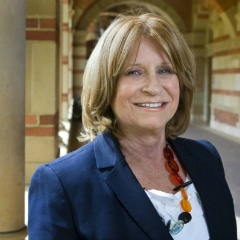
Eva L. Baker is Distinguished Professor of Education at the UCLA Graduate School of Education and Information Studies. She has directed the UCLA Center for the Study of Evaluation (CSE) since 1975. She is also Director of the Center for Research on Evaluation, Standards, and Student Testing (CRESST), a competitively awarded national institution funded by the U.S. Department of Education and supported by other government agencies and private organizations. Former president of the Educational Psychology Division of the American Psychological Association and the American Educational Research Association, Dr. Baker was also the 2006-2007 president of the American Educational Research Association and a former editor of Educational Evaluation and Policy Analysis. She was co-chair of the committee to revise the Standards for Educational and Psychological Testing (1999), was a member of the Advisory Council on Education Statistics (ACES) for the National Center for Education Statistics, and chair of the Board on Testing and Assessment of the National Research Council. Dr. Baker’s research is focused on the integration of research on learning and measurement. She also conducts studies in accountability. She is presently involved in the design of technologically sophisticated testing and evaluation systems of performance assessment in large-scale environments for both military and civilian education.
James Banks, University of Washington
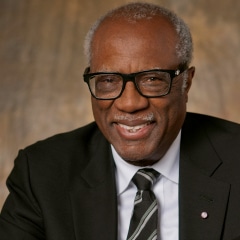
James A. Banks is Kerry and Linda Killinger Endowed Chair in Diversity Studies Emeritus at the University of Washington, Seattle. He received a BE in social science education from Chicago State University and a MA and a PhD in social science and education from Michigan State University. Banks is a leader in the fields of social studies education and multicultural education. His publications include Cultural Diversity and Education: Foundations, Curriculum, and Teaching (Sixth Edition); An Introduction to Multicultural Education (Sixth Edition); Handbook of Research on Multicultural Education; Diversity, Transformative Knowledge, and Civic Education: Selected Essays; The Routledge International Companion to Multicultural Education; and the Encyclopedia of Diversity in Education (4 Volumes), published by Sage. Banks is the co-editor of Global Migration, Diversity, and Civic Education, a book sponsored by the National Academy of Education (NAEd); and the editor of Citizenship Education and Global Migration: Implications for Theory, Research, and Teaching, which was published by the American Educational Research Association (AERA). Banks is a past president of the National Council for the Social Studies and of AERA. He received the AERA Research Review Award in 1997, the AERA Social Justice Award in 2004, and the Teachers of English to Speakers of Other Languages Inc. President’s Award in 1998. He has honorary degrees from the Bank Street College of Education, the University of Alaska, Fairbanks, the University of Wisconsin, Parkside, DePaul University, Lewis and Clark College, and Grinnell College. Banks received the Distinguished Career Research in Social Studies Award from the National Council for the Social Studies in 2001, the UCLA Medal in 2005, and a Distinguished Alumni Award from Michigan State University in 2005. He was a Spencer Fellow at the Center for Advanced Studies in the Behavioral Sciences at Stanford in 2005-2006. Professor Banks was the Tisch Distinguished Visiting Professor at Teachers College, Columbia University in 2007. In 2018 he received (with Cherry A. McGee Banks) the Lifetime Achievement Award from the National Association for Multicultural Education.
https://education.uw.edu/people/faculty/jbanks/; https://education.asu.edu/inside-the-academy-of-education/honorees/james-banks
Rubén Donato, University of Colorado, Boulder

Rubén Donato is Professor of Educational Foundations, Policy and Practice in the School of Education at the University of Colorado at Boulder. He received his BA from the University of California at Santa Cruz and his MA and Ph.D. from Stanford University. Donato studies the historical dimensions of educational inequality and focuses on the educational experiences of Mexican Americans in the United States. He is an American Educational Research Association (AERA) Fellow and received the Distinguished Career Contributions Award from the American Educational Research Association’s Committee on Scholars of Color in Education. His papers have appeared in a wide variety of academic journals and he has authored The Other Struggle for Equal Schools: Mexican Americans during the Civil Rights Era and Mexicans and Hispanos in Colorado Schools and Communities, 1920-1960. His recent work (with Jarrod Hanson) focuses on Mexican, Mexican American, and Hispano/a challenges to social and school segregation across the US from 1910 to 1953.
Margaret Eisenhart, University of Colorado, Boulder
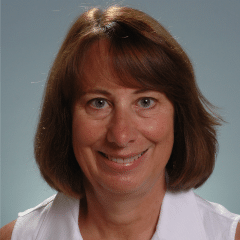
Margaret A. Eisenhart is University Distinguished Professor Emerita of Educational Anthropology and Research Methodology at the University of Colorado, Boulder. She received her undergraduate degree in French literature from Emory University and her masters and doctorate degrees in anthropology from the University of North Carolina, Chapel Hill. Her research focuses on the application of anthropological concepts and methods to educational settings. In particular, Eisenhart has studied culture, gender relations, women’s experiences, and women in science. She has conducted research in elementary and secondary schools, colleges, universities, and work places. Her most important works include: Educated in Romance: Women, Achievement, and College Culture (with Dorothy Holland); Women’s Science: Learning and Succeeding from the Margins (with Elizabeth Finkel); and Designing Classroom Research (with Hilda Borko). Her teaching areas are anthropology and education, ethnographic research methods, and introduction to research design. In her current research project, she developed a program to encourage high school minority girls’ interest in engineering and IT and is studying how the program and its goals fit into the context of the girls’ lives. She is a fellow of the American Anthropological Association and a member of the National Academy of Education. Eisenhart was the 2001 recipient of the Elizabeth Gee Award for outstanding contributions to research, teaching, and service for women. In 2003 she won the university’s highest honor, the Distinguished Research Lectureship Award for a career of outstanding scholarship.
Dorothy Espelage, University of North Carolina at Chapel Hill

Dorothy L. Espelage is the William C. Friday Distinguished Professor of Education at the University of North Carolina at Chapel Hill. Previously, she was professor of Psychology at the University of Florida. She is the recipient of the APA Lifetime Achievement Award in Prevention Science and the 2016 APA Award for Distinguished Contributions to Research in Public Policy, and is a Fellow of APS, APA, and AERA. She was just elected to the National Academy of Education. She earned her Ph.D. in Counseling Psychology from Indiana University in 1997. Over the last 22 years, she has authored over 200 peer- reviewed articles, six edited books, and 70 chapters on bullying, homophobic teasing, sexual harassment, dating violence, and gang violence. Her research focuses on translating empirical findings into prevention and intervention programming and she has secured over eleven million dollars of external funding. She advises members of Congress and Senate on bully prevention legislation. She conducts regular webinars for CDC, NIH, and NIJ to disseminate research. She authored a 2011 White House Brief on bullying among LGBTQ youth and attended the White House Conference in 2011, and has been a consultant on the stopbullying.gov website and consultant to the National Anti-bullying Campaign, Health Resources and Services Administration (HRSA) in the U.S. Department of Health and Human Services (HHS). She has presented multiple times at the Federal Partnership to End Bullying Summit and Conference. She is a consultant to the National Institutes of Health Pathways to Prevention Initiative to address bullying and youth suicide. Espelage has appeared on many television news and talk shows and has been quoted in the national print press.
David Figlio, Northwestern University
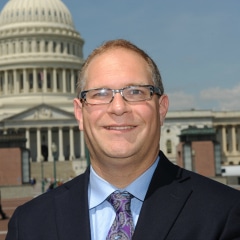
David Figlio is the Orrington Lunt Professor Dean of the School of Education and Social Policy at Northwestern University, as well as Research Associate at the National Bureau of Economic Research. He earned his PhD in Economics in 1995 from the University of Wisconsin-Madison. His research on education and social policy, including influential work on school accountability, standards, welfare policy, and policy design, has been published in numerous leading journals including the American Economic Review, Journal of Public Economics, Review of Economics and Statistics, Journal of Law and Economics, JAMA Pediatrics, and Journal of Human Resources. His research has been funded by the National Science Foundation, the National Institutes of Child Health and Human Development, and the U.S. Departments of Agriculture, Education, and Health and Human Services, as well as the Annie E. Casey Foundation, Atlantic Philanthropic Society, Smith Richardson Foundation and Spencer Foundation. He is a member of the Executive Board of the National Center for the Analysis of Longitudinal Data in Education Research and serves as editor-in-chief of the Journal of Human Resources and associate editor of several other leading journals. He has served on numerous national education task forces and panels, and has advised several U.S. states and nations on five continents on the design, implementation and evaluation of education policy.
Megan Franke, University of California, Los Angeles
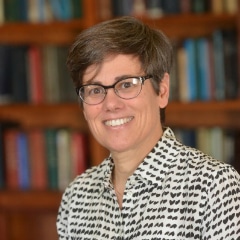
Megan Franke is an education professor in the Graduate School of Education and Information Studies at UCLA. Franke’s research focuses on understanding and supporting teacher learning for both preservice and inservice teachers. She studies how teaching mathematics with attention to students’ and their mathematical thinking can create opportunities for low-income students of color to learn mathematics with understanding. She is known for her leadership in Center X: Where Research and Practice Intersect for Urban School Professionals and her ongoing professional development work to support teachers, schools, and communities. She received her doctorate in educational psychology from the University of Wisconsin-Madison.
Ofelia Garcia, The Graduate Center, City University of New York
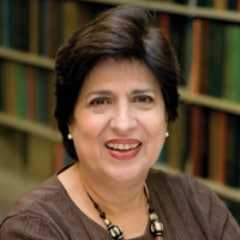
Ofelia García is Professor in the Ph.D. programs of Urban Education and of Latin American, Iberian, and Latino Cultures (LAILAC) at the Graduate Center of the City University of New York. She has been Professor of Bilingual Education at Columbia University’s Teachers College, Dean of the School of Education at the Brooklyn Campus of Long Island University, and Professor of Education at The City College of New York. Among her best-known books are Bilingual Education in the 21st Century: A Global Perspective; Translanguaging; Language, Bilingualism and Education (with Li Wei, 2015 British Association of Applied Linguistics Book Award recipient). Her recent books (2016-2017) include The Oxford Handbook of Language and Society (with N. Flores & M. Spotti); Encyclopedia of Bilingual and Multilingual Education (with A. Lin & S. May), The Translanguaging Classroom (with S. I. Johnson & K. Seltzer); Translanguaging with Multilingual Students (with T. Kleyn). Prior to 2016, García’s books include Educating Emergent Bilinguals (with J. Kleifgen), Handbook of Language and Ethnic Identity (with J. Fishman), Negotiating Language Policies in Schools: Educators as Policymakers (with K. Menken), Imagining Multilingual Schools (with T. Skutnabb-Kangas and M. Torres-Guzmán), and A Reader in Bilingual Education (with C. Baker). She is the General Editor of the International Journal of the Sociology of Language and the co-editor of Language Policy (with H. Kelly-Holmes). García was co-principal investigator of CUNY-NYSIEB (www.cuny-nysieb.org) from its inception in 2011 until 2016. García’s extensive publication record on bilingualism and the education of bilinguals is grounded in her life experience living in New York City after leaving Cuba at the age of 11, teaching language minority students bilingually, educating bilingual and ESL teachers, and working with doctoral students researching these topics. In 2016 García received an Honorary Doctorate of Humane Letters from Bank Street Graduate School of Education, and in 2017 she received the Charles Ferguson Award in Applied Linguistics from the Center of Applied Linguistics, and the Lifetime Career Award from the Bilingual Education SIG of the American Education Research Association.
Kris Gutierrez, University of California, Berkeley

Kris D. Gutiérrez is Professor of Education in the Graduate School of Education at the University of California, Berkeley and holds the Carol Liu Chair. Gutiérrez is a learning scientist with research interests in literacy, educational policy, and qualitative, design-based approaches to inquiry. Gutiérrez’s research examines learning in designed environments, with attention to students from nondominant communities and Dual Language Learners. Her work on Third Spaces examines the affordances of syncretic approaches to literacy and learning, new media literacies, STEM learning, and the re-mediation of functional systems of learning. She is past president of the American Educational Research Association and was appointed by President Obama to the National Board for the Institute of Education Sciences, for which she served as vice-chair. Gutiérrez’s research has been published widely in premier academic journals, and is a co-author of Learning and Expanding With Activity Theory.
Gutiérrez has won numerous scholarly awards, including the Literacy Research Association Oscar Causey Award for outstanding contributions to literacy research, AERA Division C Sylvia Scribner Award for influencing the field of learning and instruction (2005), the Medal of Excellence from the Columbia University/Teachers College (2016), the AERA Division G Distinguished Contributions to Social Contexts in Education Research-Lifetime Achievement Award (2014) and the Henry T. Trueba Award for Research Leading to the Transformation of the Social Contexts of Education (2014). Gutiérrez received the AERA Hispanic Research in Elementary, Secondary, or Postsecondary Education Award and the Inaugural Award for Innovations in Research on Diversity in Teacher Education, Division K (AERA). She was a fellow at the Center for Advanced Study in the Behavioral Sciences, served on the U.S. Department of Education Reading First Advisory Committee, and was a member of President Obama’s Education Policy Transition Team.
Sylvia Hurtado, University of California, Los Angeles
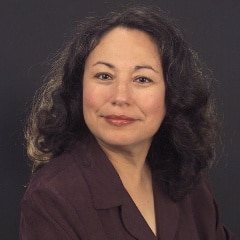
Sylvia Hurtado is Professor in the Graduate School of Education and Information, and served as Director of the Higher Education Research Institute at the University of California, Los Angeles for more than a decade. Previous to UCLA, she also served as Director of the Center for the Study of Higher and Postsecondary Education at the University of Michigan. She has written extensively on racial campus climate, the experiences of underrepresented identity groups in college, and diversity in higher education. She has over 100 publications, seven books/monographs, and co-edited two books that won awards from the International Latino Book Awards in 2016 for Hispanic-Serving Institutions: Advancing Research and Transformative Practice (Routledge Press) and in 2017 for The Magic Key: The Educational Journey of Mexican Americans from K-12 to College and Beyond (University of Texas Press). She received the 2018 Social Justice in Education Award from the American Educational Research Association; the 2015 Research Award from the Division J, and was named an AERA Fellow in 2011. She served as President of the Association for the Study of Higher Education (ASHE) in 2005, and Chaired the University of California System-wide Academic Senate’s Board of Admissions and Relations with Schools in 2010 that resulted in policy changes in statewide eligibility for college admission. Her research, in collaboration with scholars, was used as strong evidence for using race in college admissions as part of the University of Michigan’s affirmative action cases, informing the 2003 Supreme Court case decisions in Grutter v. Bollinger and Gratz v. Bollinger. Black Issues in Higher Education (Diverse magazine), named her among the Top 15 influential faculty who personify scholarship, service and integrity and whose work has had substantial impact on the academy. She has led several federally-funded (NIH, NSF, IES) projects on diverse learning environments and student retention, STEM education and diversification of the scientific workforce, and innovation in undergraduate education. Her most recent work involves collaborating with scholars to advance culturally aware mentoring practices and assessment in graduate education; and the impact of culturally responsive, student-centered interventions on transformation in the university.
Dr. Hurtado grew up in San Antonio, Texas and received an A.B. degree from Princeton University in Sociology; an M.Ed. in Administration and Social Policy from the Harvard Graduate School of Education; and a Ph.D from UCLA in Education.
David Kaplan, University of Wisconsin-Madison
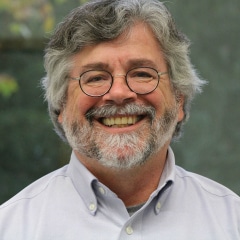
David Kaplan is the Patricia Busk Professor of Quantitative Methods in the Department of Educational Psychology at the University of Wisconsin-Madison. Kaplan holds affiliate appointments in the University of Wisconsin’s Department of Population Health Sciences and the Center for Demography and Ecology and is also an Honorary Research Fellow in the Department of Education at the University of Oxford. Kaplan holds research affiliate appointments at the Leibniz Institute for Educational Research and Information and the Leibniz Institute for Educational Trajectories. Kaplan’s program of research focuses on the development Bayesian statistical methods for education research. His work on these topics is directed toward applications to large-scale cross-sectional and longitudinal educational surveys. He is actively involved in the OECD Program for International Student Assessment (PISA) where he served on its Technical Advisory Group from 2005-2009 and its Questionnaire Expert Group from 2004-present where he served as the Chair of the Questionnaire Expert Group for PISA 2015. Kaplan also sits on the Design and Analysis Committee and the Questionnaire Standing Committee for the National Assessment of Educational Progress (NAEP). Kaplan is an elected member of the National Academy of Education, a recipient of the Samuel J. Messick Distinguished Scientific Contributions Award from the American Psychological Association (Division 5), a recipient of the Humboldt Research Award, a fellow of the American Psychological Association (Division 5), and was a Jeanne Griffith Fellow at the National Center for Education Statistics. Kaplan received his Ph.D. in education from UCLA in 1987.
Joseph Krajcik, Michigan State University
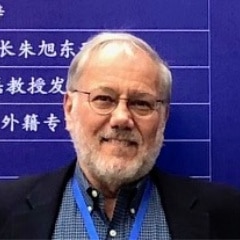
Joseph Krajcik serves as director of the CREATE for STEM Institute and is the Lappan-Phillips Professor of Science Education at Michigan State University. In his role as director of CREATE, he works with faculty, teachers and researchers to improve the teaching and learning of science, mathematics and engineering kindergarten through college by engaging in innovation and research. Throughout his career, Joe has focused on working with science teachers to design and test learning environments to reform science teaching practices and to research student learning and engagement in project-based learning environments. He has authored and co-authored books, over 100 manuscripts and curriculum materials. In 2019, Joe was elected as a member of the National Academy of Education Member. In 1999 he served as president of the National Association for Research in Science Teaching from which he received the Distinguished Contributions to Science Education Through Research Award in 2010. In 2014 he received from Michigan Science Teachers’ Association the George G. Mallinson Award for overall excellence of contributions to science education. He was honored to receive a Distinguished Professorship from Ewha Woman’s University in Seoul, South Korea in 2009, Guest Professorships from Beijing Normal University in Beijing, China in 2002 and 2018, and the Weston Visiting Professor of Science Education from Weizmann Institute of Science, Israel in 2005.
Michal Kurlaender, University of California, Davis
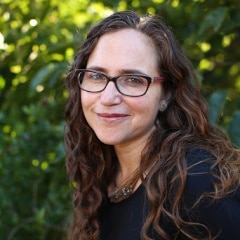
Michal Kurlaender is Professor of Education Policy and Chair at the School of Education, University of California, Davis. Her research focuses on the causes and consequences of educational inequality across a diverse set of educational pathways. Kurlaender investigates critical areas of education policy including, school reform and accountability, career and technical education, college admissions, access to and success in college, college quality, and labor market returns to education. Professor Kurlaender works closely with all of California’s public K-12 and higher education sectors–the University of California, the California State University and the California Community College systems. In 2016 she launched an IES-funded partnership with the California Department of Education to explore college and career readiness and students’ transition to post-secondary schooling and work. Kurlaender serves as a faculty director of Policy Analysis for California Education (PACE) and Wheelhouse: The Center for Community College Leadership and Research. Professor Kurlaender was a Visiting Scholar at the Russell Sage Foundation in 2017-18, and a UC Davis Chancellor Fellow 2013-2018. She is a member of the Mindset Scholars Network, the UC Provost’s Advisory Council on Educational Equity, and the UC Davis Center for Poverty Research. Kurlaender received her doctorate in education from Harvard University in 2005. Her work has been published in various academic and policy outlets.
Gloria Ladson-Billings, University of Wisconsin-Madison

Gloria Ladson-Billings is the former Kellner Family Distinguished Professor of Urban Education in the Department of Curriculum and Instruction and faculty affiliate in the Department of Educational Policy Studies at the University of Wisconsin, Madison. She was the 2005-2006 president of the American Educational Research Association (AERA). Ladson-Billings’ research examines the pedagogical practices of teachers who are successful with African American students. She also investigates Critical Race Theory applications to education. She is the author of the critically acclaimed books The Dreamkeepers: Successful Teachers of African American Children and Crossing Over to Canaan: The Journey of New Teachers in Diverse Classrooms, and numerous journal articles and book chapters. She is the former editor of the American Educational Research Journal and a member of several editorial boards. Her work has won numerous scholarly awards including the H.I. Romnes Faculty Fellowship, the NAEd/Spencer Postdoctoral Fellowship, and the Palmer O. Johnson outstanding research award. During the 2003-2004 academic year, she was a fellow at the Center for Advanced Study in the Behavioral Sciences at Stanford University. In fall of 2004, she received the George and Louise Spindler Award from the Council on Anthropology and Education for significant and ongoing contributions to the field of educational anthropology. She holds honorary degrees from Umeå University (Umeå Sweden), University of Massachusetts-Lowell, the University of Alicante (Alicante, Spain), the Erickson Institute (Chicago), and Morgan State University (Baltimore). She is a 2018 recipient of the AERA Distinguished Research Award, and she was elected to the American Academy of Arts & Sciences in 2018.
Judith Warren Little, University of California, Berkeley
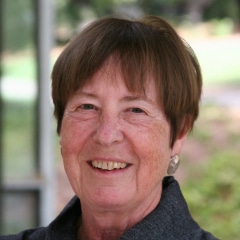
Judith Warren Little is Carol Liu Professor of Education Policy, emerita, and former dean at the Graduate School of Education, University of California, Berkeley. She received her PhD in sociology from the University of Colorado and worked as Senior Program Director at Far West Laboratory (now WestEd) before joining the faculty at Berkeley. Her research focuses on teachers’ work and careers, the organizational and policy contexts of teaching, and teachers’ professional development. In particular, she investigates the resources and interactions that support or constrain teacher learning in both formal professional development and informal workplace settings. She is also interested in international developments in the composition, quality, distribution and preparation of the teacher workforce, and in cross-field studies of education for the professions. Little has served as member and chair of the Academy’s post-doctoral selection committee and as a member of the NAEd Board of Directors.
Elizabeth Birr Moje, University of Michigan
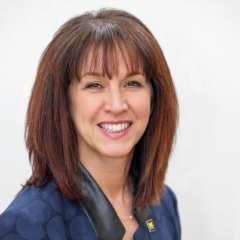
Elizabeth Birr Moje is dean, George Herbert Mead Collegiate Professor of Education, and an Arthur F. Thurnau Professor of Literacy, Language, and Culture in the School of Education at the University of Michigan. Moje teaches undergraduate and graduate courses in secondary and adolescent literacy, cultural theory, and research methods and was awarded the Provost’s Teaching Innovation Prize with colleague, Bob Bain, in 2010. A former high school history and biology teacher, Moje’s research examines young people’s navigation of culture, identity, and literacy learning in and out of school in Detroit, Michigan. Moje has published 5 books and numerous articles in journals such as Science, Harvard Educational Review, Teachers College Record, Reading Research Quarterly, Journal of Literacy Research, Review of Education Research, Journal of Research in Science Teaching, Science Education, International Journal of Science Education, Journal of Adolescent & Adult Literacy, and the International Journal of Qualitative Studies in Education. Her research projects have been or are currently being funded by the National Institute of Health/NICHD, John S. and James L. Knight Foundation, National Science Foundation, William T. Grant Foundation, Spencer Foundation, International Reading Association, and the National Academy of Education. Moje chairs the William T. Grant foundation Scholar Selection Committee and is a member of the National Academy of Education.
Richard Murnane, Harvard University

Richard Murnane, an economist, is the Thompson Research Professor at the Harvard Graduate School of Education and a research associate at the National Bureau of Economic Research. Over the last 40 years, Murnane has studied the effectiveness of school improvement strategies, teacher labor markets, and the impacts of technical change on skill demands. With Greg Duncan, Murnane has examined the respects in which the growth in family income inequality in the U.S. has affected educational opportunities for children from low-income families and the effectiveness of alternative strategies for improving life chances for these children. Products of this project included the 2011 edited volume, Whither Opportunity, and the 2014 book, Restoring Opportunity. One of Murnane’s current research projects (with Stanford sociologist Sean Reardon) examines trends in the use of different types of private schools by low- and higher-income families in the U.S. Murnane is a member of the American Academy of Arts and Sciences.
Na’ilah Suad Nasir, Spencer Foundation
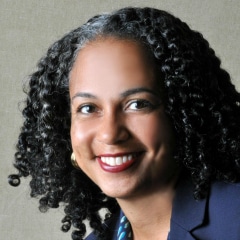
In 2017, Na’ilah Suad Nasir became the sixth President of the Spencer Foundation. She was a faculty member at the University of California, Berkeley from 2008-2017 and was selected as the second UC Berkeley Vice Chancellor for Equity and Inclusion in 2015. She also holds the Birgeneau Chair in Educational Disparities in the Graduate School of Education, and was previously the H. Michael and Jeanne Williams Chair of African American Studies. Nasir joined the Berkeley faculty in 2008 from the School of Education at Stanford University, where she earned the St. Claire Drake Teaching Award in 2007.
The author of Racialized Identities: Race and achievement for African-American youth, published by the Stanford University Press in 2011, Nasir’s research examines the racialized and cultural nature of learning and schooling. She is interested in the intertwining of social, cultural, and political contexts and learning, especially in connection with inequity in educational outcomes. Nasir also published over 30 articles in scholarly journals. In 2017, Nasir was elected to membership in the National Academy of Education. The National Academy of Education (NAEd) advances high quality education research and its use in policy and practice.
Nasir has also been an integral member of the UC Berkeley Resident Faculty Program where faculty integrate themselves into student life and provide support for students by living alongside them in the residence halls. In this role, she worked with Resident Faculty colleagues to promote academic achievement and to create an inclusive and comfortable community that encourages personal growth and development. She strives to integrate her scholarly work with her commitment to community and engaged scholarship.
Nasir received her BA in 1993 from UC Berkeley (Social Welfare and Psychology) and her PhD in 2000 from UCLA (Psychological Studies in Education).
Annemarie Sullivan Palincsar, University of Michigan
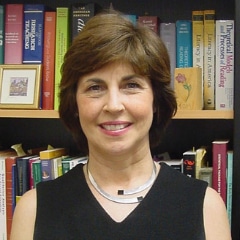
Annemarie Sullivan Palincsar is the Jean and Charles Walgreen, Jr. Professor of Reading and Literacy at the University of Michigan School of Education. Annemarie is a literacy researcher and teacher educator who has focused much of her scholarship on the intersection of science and literacy learning. She has had a number of NSF and IES grants focused on teacher practice specific to enhancing elementary children’s engagement and learning in the context of investigation-based science and specific to text comprehension.
Prior to receiving her doctorate from the University of Illinois, Annemarie was a resource consulting teacher for atypical learners. Her work has been published in Cognition and Instruction, Elementary School Journal, Teachers College Record, Teaching and Teacher Education, and The Journal of the Learning Sciences among others.
Annemarie was a member of the National Research Council’s Study of Teacher Education Programs and the National Academy of Education’s Commission on Teacher Education. She also served on the National Research Council Task Force on Instructional Implications of How People Learn. In her current research, Annemarie is exploring the use of tablet technology to support diverse learner’s engagement in science literacy practices.
Laura Perna, University of Pennsyvlania

Laura W. Perna is James S. Riepe Professor and Executive Director of the Alliance for Higher Education and Democracy (AHEAD) at the University of Pennsylvania (Penn). She is a faculty fellow of the Institute for Urban Research, faculty affiliate of the Penn Wharton Public Policy Initiative, and member of the advisory board for the Netter Center for Community Partnerships, as well as past chair of Penn’s faculty senate. Dr. Perna has served as President of the Association for the Study of Higher Education (ASHE) and Vice President of the American Educational Research Association’s Division J (Postsecondary Education) and is a member of the AERA Grants Governing Board. She has served on the editorial boards of American Education Research Journal, Educational Researcher, Educational Evaluation and Policy Analysis, Journal of Higher Education, Review of Higher Education, Journal of College Student Development, and Research in Higher Education, and as associate editor of AERA Open. She is now editor of Higher Education: Handbook of Theory and Research and a member of the Board of Directors for Postsecondary Network Policy Institute (PNPI).
Dr. Perna’s research examines the ways that social structures, institutional practices, and public policies promote and limit college access and success, particularly for groups that continue to be underrepresented in higher education. Her scholarship is published in books, journal articles, policy reports, and other outlets. Recent publications include Improving Research-Based Knowledge of College Promise Programs (with Edward Smith, 2019, American Educational Research Association), Taking It to the Streets: The Role of Scholarship in Advocacy and Advocacy in Scholarship (2018, Johns Hopkins University Press), The Attainment Agenda: State Policy Leadership for Higher Education (with Joni Finney, 2014, Johns Hopkins University Press) and The State of College Access and Completion: Improving College Success for Students from Underrepresented Groups (with Anthony Jones, 2013, Routledge). She has provided invited testimony to the U.S. Senate’s Health Education Labor and Pensions Committee and the Subcommittee on Higher Education and Workforce Training, Committee on Education and the Workforce, United States House of Representatives. Her research has been funded by the U.S. Department of Education’s Institute of Education Sciences, Lumina Foundation, and other organizations.
Among other honors, Dr. Perna has received the Christian R. and Mary F. Lindback Foundation Award for Distinguished Teaching from the University of Pennsylvania, Early Career Achievement Award from ASHE, Excellence in Public Policy in Higher Education Award from ASHE’s Council on Public Policy and Higher Education, the Dr. Constance Clayton Education Award from the Philadelphia College Prep Roundtable, and the Robert P. Huff Golden Quill Award from the National Association of Student Financial Aid Administrators. She is also a Fellow of the American Educational Research Association. She holds bachelor’s degrees in economics and psychology from the University of Pennsylvania, as well as a master’s in public policy (M.P.P.) and Ph.D. in education from the University of Michigan.
Barbara Rogoff, University of California, Santa Cruz

Barbara Rogoff is the UC Santa Cruz Distinguished Professor of Psychology at the University of California-Santa Cruz. She received the 2013 Award for Distinguished Lifetime Contributions to Cultural and Contextual Factors in Child Development, from the Society for Research in Child Development. She is a Fellow of the Association for Psychological Science, the American Anthropological Association, the American Psychological Association (APA), and the American Educational Research Association.
Rogoff’s research focuses on cultural aspects of learning, with special interest in collaboration and observation, and Indigenous-heritage, Mexican, Guatemalan, and other communities of the Americas.
She has held the University of California Presidential Chair and has been a Fellow of the Center for Advanced Study in the Behavioral Sciences, a Kellogg Fellow, a Spencer Fellow, and an Osher Fellow of the Exploratorium. She served as Editor of Human Development, Study Section member for the National Institute of Child Health and Human Development, and committee member on the Science of Learning and Supporting Parents of Children Ages 0-8 for the National Academy of Science.
Her recent books have received major awards: Learning Together: Children and Adults in a School Community (finalist for the Maccoby Award of Division 7 of the APA); The Cultural Nature of Human Development (William James Book Award of Division 1 of the APA); and Developing Destinies: A Mayan Midwife and Town (Maccoby Award of Division 7 of the APA).
Rogoff has recently co-edited a special issue of Human Development (2014) on Learning by Observing and Pitching In to Family and Community Endeavors, and a volume of Advances in Child Development and Behavior (2015) on Children Learn by Observing and Contributing to Family and Community Endeavors: A Cultural Paradigm.
Christine Sleeter, California State University, Monterey Bay
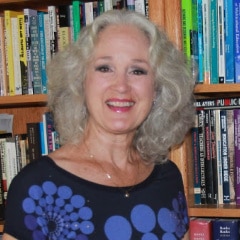
Christine E. Sleeter (PhD, University of Wisconsin) is Professor Emerita in the College of Education at California State University Monterey Bay, where she was a founding faculty member. Previously she was a faculty member at Ripon College, and the University of Wisconsin-Parkside. She has served as a visiting professor at several universities, including San Francisco State University, the University of Maine, University of Colorado Boulder, Victoria University of Wellington and Auckland University in New Zealand, and Universidad Nacional de Educación a Distancia in Madrid, Spain. She is past President of the National Association for Multicultural Education, and past Vice President (Division K) of the American Educational Research Association. Her research focuses on anti-racist multicultural education, ethnic studies, teacher education, and critical family history. She has published over 150 articles and 24 books, including Un-Standardizing Curriculum (2nd ed. with J. Flores Carmona, Teachers College Press, 2017) and Transformative Ethnic Studies in Schools (with M. Zavala, Teachers College Press, 2020). Her ethnic studies research review is widely used in efforts to instantiate ethnic studies in K-12 schools across the U.S. She has also published two novels that feature teachers as main characters (White Bread and The Inheritance), and is in the process of completing a third. She serves on several advisory boards, including the Handbook of Research on Teachers of Color, el Centro de Investigación en Educación para la Justicia Social (in Chile), and the UC California Teacher Research and Improvement Project. Awards for her work include the American Educational Research Association Social Justice in Education Award, the Chapman University Paulo Freire Education Project Social Justice Award, Kappa Delta Pi Laureate, and the National Association for Multicultural Education Exceptional Service Award. Her community service at present includes” incoming newsletter editor for the Central Coast Writers, doing volunteer gardening for the City of Monterey, and serving on the CSUMB Library Dean’ Advisory Council.
Daniel Solorzano, University of California, Los Angeles
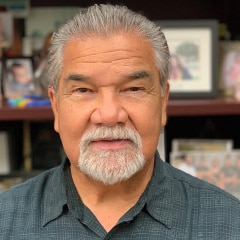
Daniel Solorzano is a Professor of Social Science and Comparative Education and Chicana and Chicano Studies at the University of California, Los Angeles. He is also the Inaugural Director of the Center for Critical Race Studies in Education at UCLA. His teaching and research interests include critical race theory in education; racial microaggressions; racial microaffirmations; and critical race spatial analysis. Dr. Solorzano has authored more than 100 research articles and book chapters on issues related to educational access and equity for underrepresented student populations and communities in the United States. For his early body of work, Solorzano received the Tomas Rivera Center Postdoctoral Fellowship, the Educational Testing Service Postdoctoral Fellowship, and the Ford Foundation Postdoctoral Fellowship. In 2007, Professor Solorzano received the UCLA Distinguished Teaching Award. In 2012, Solorzano was presented the American Education Research Association (AERA) Social Justice in Education Award. In 2012, he was also awarded the Critical Race Studies in Education Association Derrick A. Bell Legacy Award. In 2014, Solorzano was elected a Fellow of the American Education Research Association. In 2017, he received the inaugural Revolutionary Mentor Award from the AERA Critical Educators for Social Justice (CESJ). In 2019, Professor Solorzano delivered the AERA Distinguished Lecture on Racial Microaggressions. Solorzano received the Distinguished Alumni Award from the Claremont Graduate University in 2020. Also, in 2020, he received the 50th Anniversary Alumni Award from the Chicano Latino Student Affairs Center at the Claremont Colleges. In 2020, Solorzano was elected to the National Academy of Education.
Dr. Solorzano grew up in Los Angeles, California and received a B.A. degree from Loyola University in Sociology and Chicana/o Studies; an M.Ed. in Urban Education from the Loyola Marymount University; and an M.A. and Ph.D. from the Claremont Graduate School in the Sociology of Education.
Carola Suarez-Orozco, University of California, Los Angeles
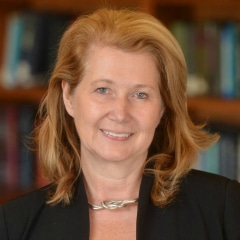
Dr. Carola Suárez-Orozco is a professor of Human Development and Psychology at the UCLA Graduate School of Education and Information Sciences. Her body of research uses mixed-methodological strategies to elucidate the child, adolescent, and young adult experience of immigration. Her work focuses on the question, how is a person’s development shaped by immigration and how are they changed by the process? Dr. Suárez-Orozco has considered a wide variety of processes including identity formation, family separations, gendered patterns, civic engagement, and most recently the unauthorized experience. A focus on school settings has been an essential and enduring theme in her basic research agenda as schools are a first contact point between the immigrant child, their family and the new society. Further, education is a critical predictor of current as well as future wellbeing and socio-economic mobility for the most rapidly growing sector of the U.S. youth population.
William Tierney, University of Southern California

William G. Tierney is University Professor Emeritus and founding director of the Pullias Center for Higher Education at the University of Southern California. He is a past president of the Association for the Study of Higher Education (ASHE) and the American Educational Research Association (AERA. He was awarded the Howard R. Bowen Distinguished Career Award from ASHE, and the Distinguished Research Award from Division J of AERA. Tierney is an elected member of the National Academy of Education, and a Fellow of AERA. At the USC Rossier School of Education, Tierney served as the associate dean for research and faculty affairs and as a department chair. He has served as academic dean at a Native American community college, a Peace Corps volunteer in Morocco, a scholar-in-residence in Malaysia and a Fulbright Scholar in Central America, Australia and India. He has been a Fellow at the Rockefeller Foundation’s Center in Bellagio, Italy, and a Fernand Braudel Fellow at the European University Institute in Florence, Italy. His recent books include: Rethinking Education and Poverty; The Impact of Culture on Organizational Decision-making, Higher Education for Democracy: The Role of the University in Civil Society; Creating a Culture of Mindful Innovation in Higher Education and Get Real: 49 Challenges Confronting Higher Education. He earned a master’s from Harvard University and a PhD from Stanford University.
Guadalupe Valdés, Stanford University
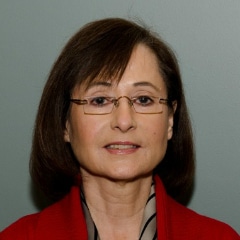
Guadalupe Valdés’ research explores many of the issues of bilingualism relevant to teachers in training, including methods of instruction, typologies, measurement of progress, and the role of education in national policies on immigration. Specifically, she studies the sociolinguistic processes of linguistic acquisition by learners in different circumstances–those who set out to learn a second language in a formal school setting (elective bilingualism) and those who must learn two languages in order to adapt to immediate family-based or work-based communicative needs within an immigrant community (circumstantial bilingualism). Her research in these areas has made her one of the most eminent experts on Spanish-English bilingualism in the United States.
Amy Stuart Wells, Columbia University
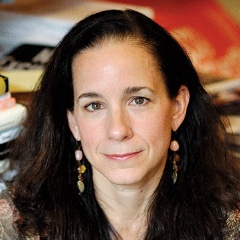
Amy Stuart Wells is a Professor of Sociology and Education and the Director of the Center for Understanding Race and Education (CURE) at Teachers College, Columbia University. Her research and writing has focused broadly on issues of race and education and more specifically on educational policies such as school desegregation, school choice, charter schools, and tracking and how they shape and constrain opportunities for students of color. Wells’ current research project, “Metro Migrations, Racial Segregation and School Boundaries,” examines urban and suburban demographic change over the last 10 years and the role that public schools and their boundaries play in who moves where. From 2009-2011 Wells was the Director of the Building Knowledge for Social Justice Project (2009-2011) at the Ford Foundation. From 1999-2006, she was the principal investigator of a five-year study of adults who attended racially mixed high schools funded by the Spencer, Joyce and Ford Foundations. She is the author and co-author of multiple books, academic articles and book chapters, including Both Sides Now: The Story of School Desegregation’s Graduates and most recently, “Longing for Milliken: Why Rodriguez Would Have Been Good but Not Enough.” In K. J. Robinson and C. Ogletree (Eds) Rodriguez at 40: Exploring New Paths to Equal Educational Opportunity. In addition, Wells began her career as a journalist and continues to write for the popular press. Wells is also the recipient of several honors and awards, including a Fellow of the American Educational Research Association (2013 inductee), 2007-2008 Fellowship at the Center for Advanced Study in the Behavioral Sciences; a 2001-02 Fellowship from the Carnegie Corporation’s Scholars Program; the 2000 Julius & Rosa Sachs Lecturer, Teachers College-Columbia University; and the 2000 AERA Early Career Award for Programmatic Research. In 1999-2000 she was a Russell Sage Visiting Scholar. In 1995-96 she was a National Academy of Education-Spencer Foundation Post-doctoral fellow, and 1990-91 she was a Spencer Dissertation Fellow.
Stanton Wortham, Boston College
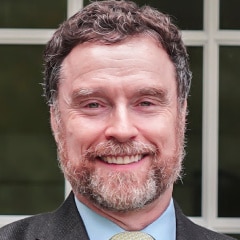
Stanton Wortham is the Charles F. Donovan, S.J., Dean of the Lynch School of Education and Human Development at Boston College. He was formerly the Berkowitz Professor of Education at the University of Pennsylvania. He earned his B.A. with highest honors from Swarthmore College and his Ph.D. from the University of Chicago in Human Development. His research applies techniques from linguistic anthropology to study interaction, learning and leadership development in classrooms and organizations. He has also studied media discourse and autobiographical narrative. Books include Learning Identity, Bullish on Uncertainty and Discourse Analysis beyond the Speech Event. He has most recently done research with Mexican immigrants, exploring the challenges and opportunities facing both newcomers and host communities in places where both Mexican and longstanding resident identities can be more fluid than in areas with a long history of Mexican settlement. This work has yielded films as well as traditional publications. He has been a W.T. Grant Foundation Distinguished Fellow and is an American Educational Research Association Fellow. He received the American Educational Research Association Cattell Early Career Research Award and the University of Pennsylvania Lindback Award for Distinguished Teaching. In both research and practice, he and his colleagues at Boston College are elaborating and implementing a broad vision of “formative education,” in which educators are responsible for fostering the development of whole people, including interrelations among interpersonal, emotional, ethical and spiritual dimensions.
Hirokazu Yoshikawa, New York University
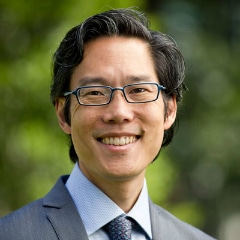
Hirokazu Yoshikawa is the Courtney Sale Ross Professor of Globalization and Education at NYU Steinhardt and a University Professor at NYU, and Co-Director of the Global TIES for Children center at NYU (for current research projects, click on Research below). He is a core faculty member of the Psychology of Social Intervention program, and a faculty affiliate of the Metropolitan Center for Equity and the Transformation of Schools and the Institute on Human Development and Social Change at NYU. He is a community and developmental psychologist who studies the effects of public policies and programs related to immigration, early childhood, and poverty reduction on children’s development. He has also conducted research on culture, sexuality and youth and young adult development in the contexts of HIV/AIDS risk and prevention and is currently conducting research on gay/straight alliances. He conducts research in the United States and in low- and middle-income countries.
Previously he served as the Walter H. Gale Professor of Education at the Harvard Graduate School of Education, and as its Academic Dean. He currently serves on the Leadership Council and as the Co-Chair of the early childhood development and education workgroup of the U.N. Sustainable Development Solutions Network, the research and technical group advising the Secretary-General on the 2015-2030 global development goals. His research has been funded by the National Science Foundation, the Institute of Education Sciences, the National Institutes of Health, and several foundations. His recent books include Immigrants Raising Citizens: Undocumented Parents and Their Young Children (2011, Russell Sage, sole authored),and Improving the Odds for America’s Children: Future Directions in Policy and Practice (2014, Harvard Education Press, with Kathleen McCartney and Laurie Forcier, a volume dedicated to the 40th anniversary of the Children’s Defense Fund with a foreword by Congressman George Miller and an afterword by Marian Wright Edelman), and Cradle to Kindergarten: A New Plan to Combat Inequality (with Ajay Chaudry, Taryn Morrissey, and Christina Weiland, 2017, Russell Sage). He serves on the Boards of the Russell Sage Foundation and the Foundation for Child Development, and on the Advisory Boards for the Open Society Foundations Early Childhood Program and the UNESCO Global Education Monitoring Report. In 2014 he was elected to the National Academy of Education. He has received two awards for mentorship of ethnic minority students from the American Psychological Association. He obtained his PhD in clinical psychology from NYU.
